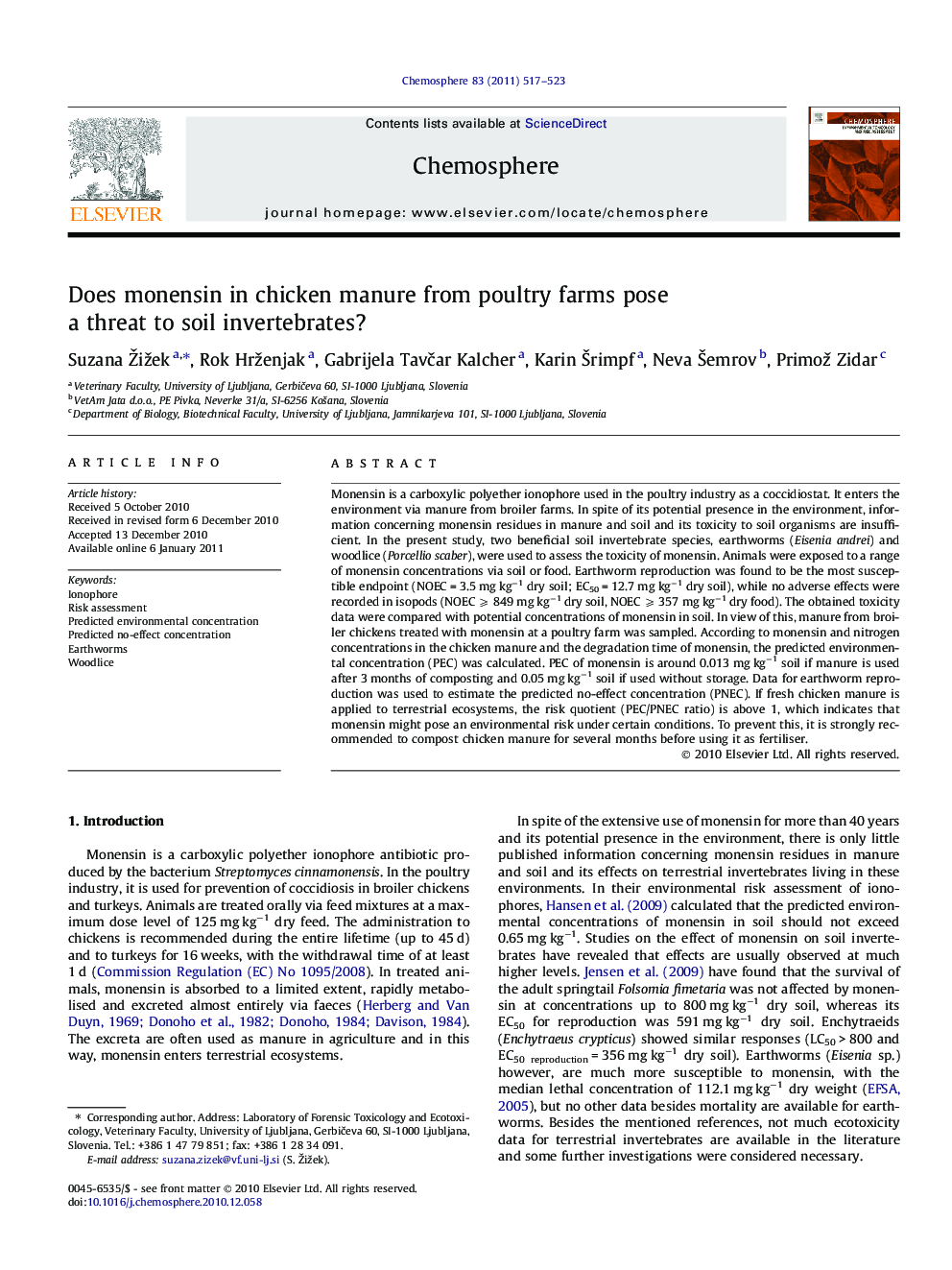| Article ID | Journal | Published Year | Pages | File Type |
|---|---|---|---|---|
| 4411074 | Chemosphere | 2011 | 7 Pages |
Monensin is a carboxylic polyether ionophore used in the poultry industry as a coccidiostat. It enters the environment via manure from broiler farms. In spite of its potential presence in the environment, information concerning monensin residues in manure and soil and its toxicity to soil organisms are insufficient. In the present study, two beneficial soil invertebrate species, earthworms (Eisenia andrei) and woodlice (Porcellio scaber), were used to assess the toxicity of monensin. Animals were exposed to a range of monensin concentrations via soil or food. Earthworm reproduction was found to be the most susceptible endpoint (NOEC = 3.5 mg kg−1 dry soil; EC50 = 12.7 mg kg−1 dry soil), while no adverse effects were recorded in isopods (NOEC ⩾ 849 mg kg−1 dry soil, NOEC ⩾ 357 mg kg−1 dry food). The obtained toxicity data were compared with potential concentrations of monensin in soil. In view of this, manure from broiler chickens treated with monensin at a poultry farm was sampled. According to monensin and nitrogen concentrations in the chicken manure and the degradation time of monensin, the predicted environmental concentration (PEC) was calculated. PEC of monensin is around 0.013 mg kg−1 soil if manure is used after 3 months of composting and 0.05 mg kg−1 soil if used without storage. Data for earthworm reproduction was used to estimate the predicted no-effect concentration (PNEC). If fresh chicken manure is applied to terrestrial ecosystems, the risk quotient (PEC/PNEC ratio) is above 1, which indicates that monensin might pose an environmental risk under certain conditions. To prevent this, it is strongly recommended to compost chicken manure for several months before using it as fertiliser.
Research highlights► Earthworms are highly susceptible to the coccidiostat monensin in soil. ► Terrestrial isopods are insusceptible to monensin in soil or in food. ► Monensin levels in broiler manure could reach as high as 10 mg kg−1 wet weight. ► Monensin in chicken manure from poultry farms could pose an environmental risk. ► Manure from monensin-treated chickens should be composted prior to use.
